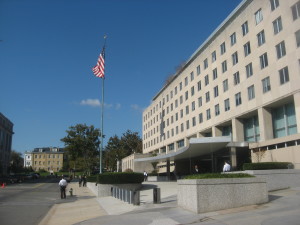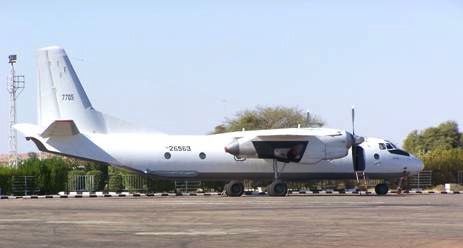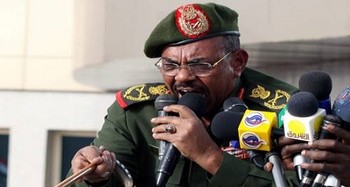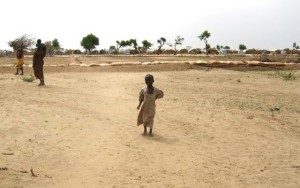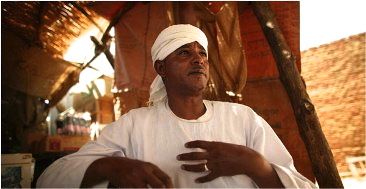On Jebel Marra: Obama Administration Sudan Policy Remains Expedient, Guided by a Perverse “Moral Equivalence”
Eric Reeves | February 18, 2016
Belatedly, the U.S. State Department has issued an equivocal and largely useless statement about a major upsurge in genocidal violence in the Jebel Marra region of Darfur:
For Immediate Release | February 18, 2016
STATEMENT BY JOHN KIRBY, SPOKESPERSON
Sudan: United States Calls for End of Violence in Jebel Marra, Darfur
The United States is deeply concerned about the increased violence against civilians and the grave humanitarian situation in and around Jebel Marra, Darfur. Initial attacks by the Sudan Liberation Army-Abdul Wahid opposition group on Sudanese armed forces prompted a response by Sudan’s military that included aerial bombardments despite the UN Security Council demand that Sudan cease offensive military flights over Darfur. These attacks have forced 73,000 people to flee their homes, and thousands more are trapped in the conflict zone of Jebel Marra without access to aid.
The United States calls on both the Government of Sudan and the armed movements of the Sudanese Revolutionary Front (SRF) to re-commit to their cessation of hostilities declarations for Darfur and in South Kordofan and Blue Nile states. We welcome the recent absence of major offensive action in South Kordofan and urge all parties to show the same restraint in Darfur and also in Blue Nile state, where government and opposition forces each carried out attacks last month.
There is no military solution to Sudan’s internal conflicts. We call on the Government of Sudan and the SRF to de-escalate the violence and work with the African Union and others to agree to a comprehensive cessation of hostilities agreement that will allow immediate and unfettered humanitarian access for Darfur, South Kordofan, and Blue Nile. We also urge the government to create an environment conducive to the participation of armed movements and other political opposition parties in a comprehensive and inclusive national dialogue that addresses systemic governance issues in Sudan.
The U.S. State Department
The statement offers a series of half-truths and misrepresentations that powerfully militate against any usefulness words from the Obama administration might have had. Instead of urging Khartoum to end its westward extension of the genocidal counter-insurgency that has raged in the “East Jebel Marra” region over the past three fighting (dry) seasons, the State Department speaks of “initial attacks by the Sudan Liberation Army-Abdul Wahid opposition group on Sudanese armed forces prompt[ing] a response by Sudan’s military.” This is simply preposterous in the context of these past three years of years of massive, immensely destructive, and brutally violent attacks against civilians in the area to the east of Jebel Marra (hence the designation of “East Jebel Marra” for the region between el-Fasher, capital of North Darfur, and the border between North Darfur and “Central Darfur,” the latter a recent administrative invention of the current Khartoum regime).
To suggest that the Sudan Liberation Army/Abdel Wahid (SLA/AW) “initiated” or “prompted” a “response” by the Sudan Armed Forces and its Arab militia allies (the Rapid Support Forces, or RSF) ignores virtually all the relevant facts. Radio Dabanga, our only reliable and relatively comprehensive source of news about this violent region, does report an SLA/AW attack in the specific areas of Guldo and Sabanaga (Central Darfur). But this is the only dispatch speaking of military action by the SLA/AW, action that might well have been preemptively defensive.
The military action by the SLA/AW is singled out, even though it occurred in mid-December 2015. The main assault by Khartoum came a full month later, on January 15, 2016. Here we see the absurdity of “moral equivalence” as a prism with which to view events in Darfur. During the first week of the coordinated campaign, there was a vast and deliberate campaign of civilian destruction and displacement, not only in Jebel Marra itself but again in East Jebel Marra. The victims were almost exclusively from the African tribal populations of Darfur—the Fur, the Tunjur, and the Birgid in particular. It is simply perverse and expedient to equate in any way the actions of the SLA/AW in mid-December with the clearly planned and massive assault on Jebel Marra, following directly on and indeed continuing a three-year assault on East Jebel Marra. During that first week of the assault on Jebel Marra, Radio Dabanga reported:
Situation of Central Darfur displaced ‘rapidly deteriorating’ | January 14, 2016 | ZALINGEI
Civilian casualties by heavy fighting in Darfur’s Jebel Marra | January 15, 2016 | JEBEL MARRA
North Darfur herders still besiege Katur village | January 15, 2016 | KATUR
Major offensive on Darfur’s Jebel Marra ongoing | January 17, 2016 | JEBEL MARRA
Darfur: Jebel Marra villagers flee to mountain top | January 18, 2016 | NIERTETI / JEBEL MARRA
Darfur: Jebel Marra bombs lead to more casualties, displaced | January 19, 2016 | (EAST) JEBEL MARRA / NIERTETI
Displaced attacked inside Darfur’s camps | January 19, 2016 | NIERTETI / KABKABIYA
Sudan government Jebel Marra offensive enters sixth day | January 20, 2016 | JEBEL MARRA
North Darfur newly displaced attacked on way to Kabkabiya | January 20, 2016 | KABKABIYA
Jebel Marra in Darfur: Three rape victims tell their story | January 21, 2016 | NIERTETI
Antonov drops 18 barrel bombs on North Darfur villages | January 21, 2016 | KABKABIYA
Withdrawing troops rape, pillage, murder in Darfur’s Nierteti | January 21, 2016 | NIERTETI
‘Thousands affected by new Darfur clashes’: UN | January 21, 2016 KHARTOUM
Darfur: Militia attacks, burned villages in Jebel Marra offensive | January 22, 2016 | JEBEL MARRA / NIERTETI / KASS
[For a scalable PDF map that includes all these locations, see here]
The overwhelming fact conveyed by these dispatches is that violence has been directed primarily against civilians, and has been relentlessly destructive. Notably, aerial attacks by Antonov “bombers” serve no military purpose—they are far too imprecise, flying at high altitudes with no bomb guidance or release system; they are rather an ongoing means of terrifying civilians and making agriculture impossible. The same has been true of the Khartoum regime’s relentless aerial assaults on the agriculture of South Kordofan and Blue Nile since summer 2011. (The rebels, of course, have no aircraft of any kind.)
The Antonov (AN-26) “bomber”–a retrofitted cargo plane from which crude barrel bombs ares imply rolled out of the cargo bay from a high altitude with no siting equipment, and of course no militarily useful precision. They are instruments of civilian terror and destruction.
South Kordofan and the Nuba Mountains, according to the U.S. State Department, are seeing an encouraging lack of violence: “We welcome the recent absence of major offensive action in South Kordofan…” In fact, the Sudan Armed Forces are badly overstretched and the Sudanese economy is crumbling. The decision by what is now a junta has clearly been to finish off Darfur and continue attacking the relatively less well-defended rebel areas in Blue Nile. But this represents no “commitment” by Khartoum, merely military practicality. Moreover, aerial attacks and other military actions in South Kordofan have not ceased, as the U.S. statement would have us believe:
Conflict Looms as Mass Government Troops Assemble | Nuba Reports, January 20, 2016
Conflict looms in the two conflict areas of South Kordofan and Blue Nile states as the Sudanese government amasses troops along the borders of rebel-controlled
SPLM-N: Civilians bombed in Kordofan’s Nuba Mountains | Radio Dabanga, February 17, 2016 | NUBA MOUNTAINS
‘Rapid Support Forces kill six in Nuba Mountains’: Observatory | Radio Dabanga, January 12, 2016 | EL ABBASIYA
SPLM-N rebels ‘destroy South Kordofan military garrison’ | Radio Dabanga, January 3, 2016
Combatants of the Sudan People’s Liberation Movement-North (SPLM-N) reportedly attacked a military garrison in the Nuba Mountains in South Kordofan on Friday. In Blue Nile state, 15 farms were demolished in aerial bombardments. In a press release today, Arnu Ngutulu Lodi, military spokesman for the SPLM-N, stated that rebel fighters destroyed the Mazlagan military garrison between Delling and Kudur. About 30 government troops were killed. The rebel fighters managed to destroy five four-wheel-drive vehicles, and seized a quantity of military equipment. After they torched the garrison, the SPLM-N troops withdrew. Four rebels were killed and 11 others injured. The spokesman added that the rebels decided to attack the garrison to prevent military plans to attack, burn, and pillage civilians and their property. “Our forces remain on high alert, and follow and monitor the movements of the government troops wherever they are.”
The statement from President Obama’s State Department also declares, equivocally, that the “the United States calls on both the Government of Sudan and the armed movements of the Sudanese Revolutionary Front (SRF) to re-commit to their cessation of hostilities declarations for Darfur and in South Kordofan and Blue Nile states.” But there is no evidence whatsoever that Khartoum has ever “committed” to a “cessation of hostilities”: all evidence suggests that the prevailing view within the regime is that military victory is possible and whatever expedient means might serve this goal will be “spun” so as to make it appear Khartoum is acceding to international demands. A reading of several sets of leaked minutes, representing the confidential thoughts of the most senior military and security officials, makes this expediency painfully clear.
[Minutes for meetings of senior military, security, and political officials are available for the following dates (links embedded); a State Department official acknowledges that the minutes are authentic:
August 31, 2014 – this is certainly the most significant set of minutes for revealing the views on war and military activities in Sudan; meeting overseen by General and First Vice President Bakri Hassan Saleh
October 11, 2015 – President al-Bashir presiding
September 10, 2014 – President al-Bashir presiding
July 1, 2014 – President al-Bashir is present at this meeting
June 3, 2014 – meeting overseen by General and First Vice President Bakri Hassan Saleh]
Two other elements of today’s statement buy the Obama administration are also deeply troubling:
“We call on the Government of Sudan and the SRF to de-escalate the violence and work with the African Union and others to agree to a comprehensive cessation of hostilities agreement that will allow immediate and unfettered humanitarian access for Darfur, South Kordofan, and Blue Nile.”
What goes unstated here is that the U.S.—along with the UN, the EU, and the AU—is acquiescing in a state of affairs in which Khartoum has imposed humanitarian embargoes on large civilian populations in all three of these states. A cessation of hostilities agreement is not a prerequisite for opening humanitarian corridors to rebel-controlled areas of South Kordofan, Blue Nile, and most especially Jebel Marra in Darfur, which has endured a humanitarian embargo for over five years now. Rather, it requires only the willingness of the Khartoum regime. By making humanitarian access contingent upon a cessation of hostilities agreement, the Obama administration is allowing Khartoum to continue with its grave violations of International Humanitarian Law.
Even more troubling is the final sentence of the Statement:
“We also urge the government to create an environment conducive to the participation of armed movements and other political opposition parties in a comprehensive and inclusive national dialogue that addresses systemic governance issues in Sudan.”
State Department officials know perfectly well that the current regime is unwilling and indeed incapable of “creating an environment conducive” to a “national dialogue that addresses systemic governance issues in Sudan.” The International Criminal Court has issued an arrest warrant charging the president of the country with multiple counts of genocide and crimes against humanity; the ICC has also issued arrest warrants for his former defense minister and the former governor of South Kordofan. Arrest warrants for many others in the regime will be issued should the regime fall, a fact well known and spurring among all these men a ruthless survivalism; they have no intention of conducting a true “national dialogue.”
President and Field Marshal Omar al-Bashir
Indeed, in the minutes noted above—which the State Department acknowledges to be authentic—the idea of a meaningful “national dialogue” is ridiculed. In so many words, senior officials, including President al-Bashir, declare that the announced “national dialogue” is a mere political ploy, designed initially to provide political breathing space and then to give some “legitimacy” to the rigged national elections of 2015.
Sadly, what the Obama administration State Department has offered us today is simply an updated version of the preposterous remark made by former U.S. special envoy for Sudan, Princeton Lyman: in a December 2011 interview with Asharq Al-Awsat (the most important pan-Arabic newspaper publishing in English), Lyman declared:
“Frankly, we do not want to see the ouster of the [Sudanese] regime, nor regime change. We want to see the regime carrying out reform via constitutional democratic measures.”
Former U.S. Special Envoy for Sudan, Princeton Lyman—the face of American expediency in dealing with the Khartoum regime
The notion that the current National Islamic Front/National Congress Party regime can “carry out reform via constitutional democratic measures” is not, as one might surmise, delusional idealism; rather it is the worst form of cynicism—invoking high ideals precisely to serve the most expedient of goals (see here).
That cynicism if of a piece with the “moral equivalence” so central in today’s statement from Obama’s State Department, which would have us believe that this is an armed conflict between rebels and a central government somehow legitimately attempting to put down a threat to its power. But the realities of conflict in Darfur have always belied such “equivalence”; the rebel leaders and various rebel elements have often behaved very badly, foolishly at times; others have engaged in violence that likely amounts to war crimes. But the Khartoum regime, not the rebels, has produced the staggering numbers of dead, displaced, wounded, and bereft:
2.7 million internally displaced persons, to which we must add the 73,000 newly displaced by the fighting in Jebel Marra (reported by the UN, February 17, 2016)
One among countless orphans amidst the vast population of displaced persons
380,000 Darfuri refugees in eastern Chad
More than 500,000 dead (the last UN mortality estimate was made in April of 2008—almost six years ago)
And there has been profound change in Darfur’s demography, one that reflects the imperative coming from the headquarters of infamous Janjaweed leader Musa Hila in August 2004: “Change the demography of Darfur; empty it of African tribes.” Land restitution—following the massive violent expropriation of African farmlands by Arab militiamen, particularly in recent years—looms as a nearly insurmountable goal in future peace talks, grim evidence of the cost of dithering diplomacy, expediency, and disingenuous diplomats.
Musa Hilal, the most notorious of the Janjaweed leaders
Until real honesty becomes a part of peace negotiations for Darfur and Obama administration policy, we will continue to see dispatches of the following sort (dispatch titles here contain links to the dispatches themselves):
At least 32 children die of exhaustion in Darfur’s Jebel Marra | January 28, 2016 | JEBEL MARRA
Children starve high in Darfur’s Jebel Marra | February 5, 2016 | JEBEL MARRA / NIERTETI / TUR
UN: ‘73,000 civilians now displaced by recent Darfur conflict’ | February 17, 2016 | KHARTOUM
Militiamen attack Jebel Marra markets | February 17, 2016 | EAST JEBEL MARRA
Settlers occupy farms in ‘East Jebel Marra’ in North Darfur | February 3, 2016 | TAWILA
Bombs rain on Sudan’s Jebel Marra, rebels claim counter-attack | February 17, 2016 | JEBEL MARRA
‘Sudan air raids target displaced, block trade in Jebel Marra’ | February 10, 2016 | GOLO / MALAM / TAWILA / KASS / NIERTETI
Three Darfur children killed in Jebel Marra attack | February 3, 2016 | SORTONY / NIERTETI
Six die in bombardment near Golo in Darfur’s Jebel Marra | February 1, 2016 | GOLO
Ongoing Jebel Marra bombing kills 11, injures five Darfuris | February 14, 2016 | JEBEL MARRA
Darfur: Strafing continues in Jebel Marra war zone | January 24, 2016 | JEBEL MARRA
More Central Darfur villagers displaced by bombing | January 24, 2016 | NIERTETI
Darfur’s Jebel Marra ‘secured by army forces’, attacks continue | February 8, 2016 | KHARTOUM / JEBEL MARRA
Dali village in North Darfur attacked again | February 8, 2016 | TAWILA
Stream of Jebel Marra displaced arrive at North Darfur camp | February 4, 2016 | TAWILA
Attacks continue in Darfur’s Jebel Marra | February 7, 2016 | JEBEL MARRA / TAWILA
‘Tens of thousands trapped in Darfur’s Jebel Marra’ | February 11, 2016 | GOLO / LONDON
Jebel Marra displaced gather in Tur, Nierteti | February 16, 2016 | TAWILA / NIERTETI
Jebel Marra: Villagers flee to North, Central Darfur towns | January 28, 2016 | NIERTETI / GULDO / TAWILA
Bombing, shelling in Darfur’s Jebel Marra continues | January 27, 2016 | NIERTETI / GOLO / TAWILA
Children killed in bombardment on Jebel Marra, Darfur | January 26, 2016 | GOLO / TAWILA
Bombing kills baby, influx of displaced into Darfur towns | February 12, 20o6 | GOLO / TAWILA
Three gang-raped near Tabit in North Darfur | January 25, 2016 | TABIT
Six women raped in Darfur’s Shangil Tobaya | February 12, 2016 | SHANGIL TOBAYA
Two women shot, two more raped in Darfur | February 2, 2016 | JEBEL MARRA / TAWILA
Two raped for hours in North Darfur | February 17, 2016 | TAWILA
North Darfur militiamen impose ‘passage fees’ on fleeing villagers | February 10, 2016 | TAWILA
UXO kills two men, bombing continues in Darfur’s Jebel Marra | February 2, 2016 | EAST JEBEL MARRA
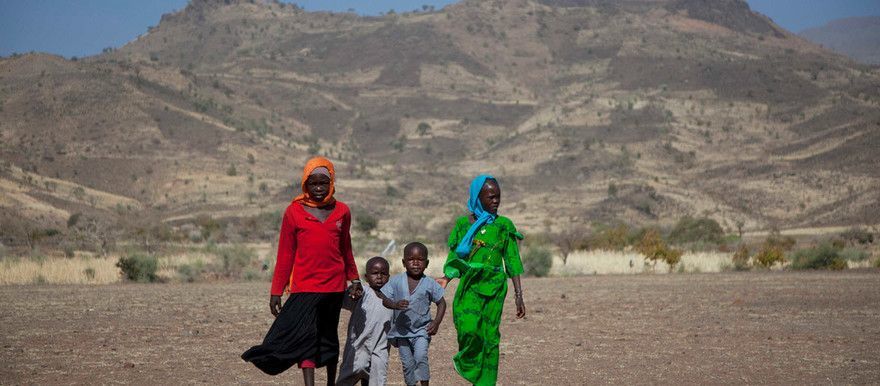 Women and children make up approximately 90 percent of the currently displaced population in Jebel Marra—an ominous figure…
Women and children make up approximately 90 percent of the currently displaced population in Jebel Marra—an ominous figure…
